Sitting at Café Central in the Petit Socco, the main square in the old Medina of Tangier, I take in my surroundings. I hear the familiar sounds, with Arabic, Spanish, and English words intermingling in my ears. A motorcycle carrying a tarp-covered wagon emerges through a narrow passage, forcing people to scurry to the wall of the closest building. I look around and see the regular Moroccan customers hanging out around tables, as well as a crowd of tourists following a guide holding up a sign that reads “Windstar Cruises.”
The tourists bring to mind the words from an article—“Beat and Dust: Tangier’s Tang of History” — I just read in the Guardian: in the Petit Socco, the “main entertainment is watching long trains of Americans in bright clothes come in from the cruise ships, looking every different shade of alarmed as children and merchants buzz around them, forcing them to buy fezzes, mirrors, wooden snakes, scarves and endless streams of other rubbish.” I laugh at the sight of four different merchants desperately trying to keep up with the tour group, pulling different colored scarves and djellabas from their overflowing arms, as the tourists divert their eyes to not show any interest in hopes that the persistent merchant will move onto the next person.
A tall man with curly hair passes by us, nervously fiddling with his white collar peeking out from under his dark green djellaba. I’ve seen him many times before, usually asking for change from people sitting in the cafes scattered throughout the Petit Socco. This time he passes by without a word.
To my left I see a man with long white hair and a beard sitting by himself against the wall of the café, sipping a coffee as he always does. He watches the people as they pass through the Medina.
The tall man with curly hair passes again, going in the same direction as before. I wonder where he has come from — there must be some sort of secret loop. This time, he has his hands out in front of him, moving his long slender fingers as if he were playing the piano. I wonder for a second if he’s high on something. Either that or he’s just a little crazy.
I suppose you can call me a regular to Café Central or its neighbor Café Tingis, since I come here often enough with Abdu. Though I’ve always just thought of the Petit Socco as a place to have coffee with friends, I’ve begun to wonder why Abdu and many other Moroccans come here to leisurely spend their time.
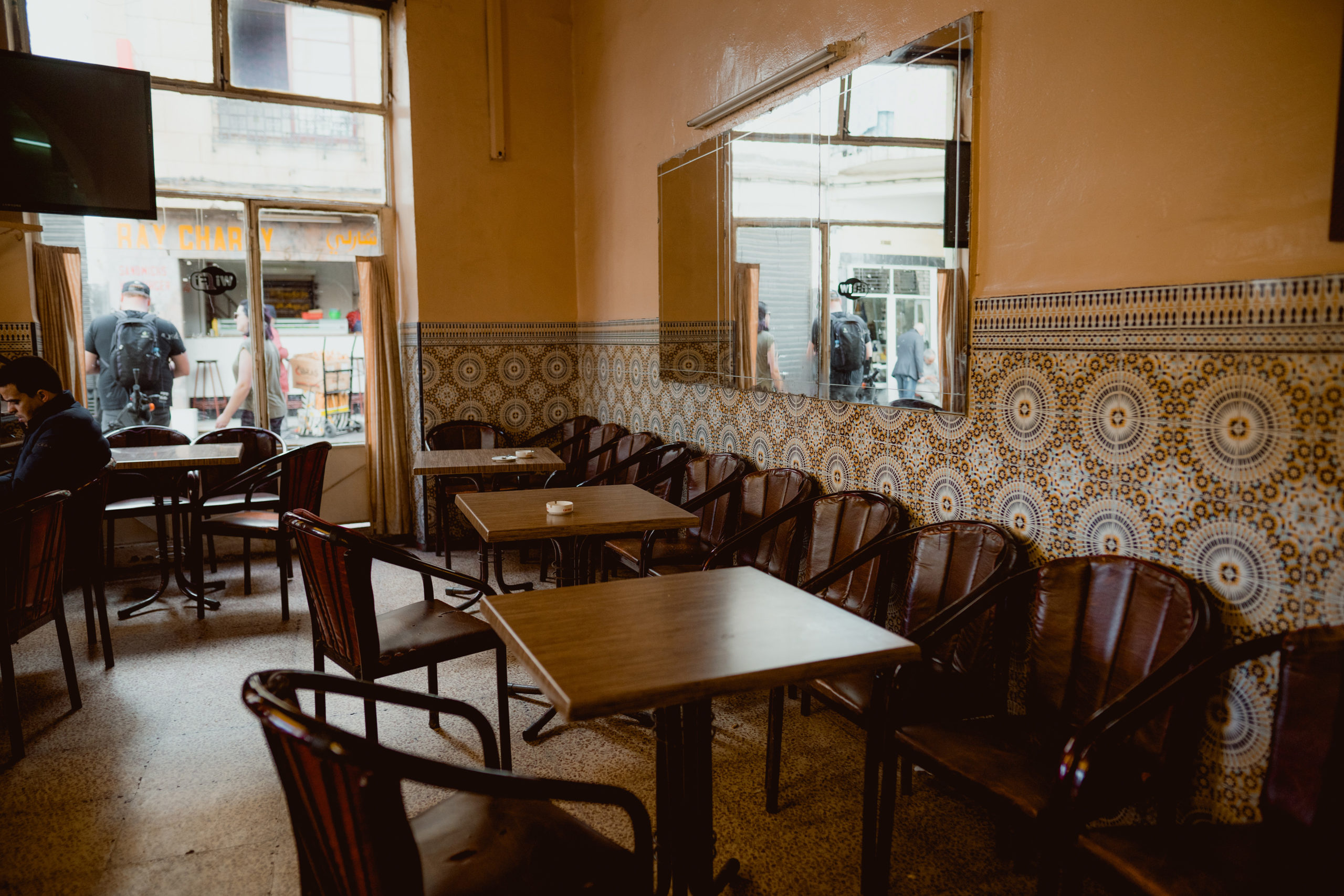
“Why do you like this place so much?” I ask Abdu as he takes a sip of his steaming mint tea. “Don’t you ever get bored of going to the same place every day?”
He looks surprised by my question. He takes a moment to think before giving me his answer. “I like Café Tingis because I feel like I’m not sitting in Morocco.” He could tell from my expression that I’m confused. He explains: “Tingis has people from all over the world. Black, White, Asian, everything. You see rich and poor. It’s not like in the new city, where I feel like everyone is trying to show off what they have.”
His answer surprises me at first, but then I look around the Petit Socco again. There are groups of Spaniards sipping their Moroccan mint teas, while children run up and down the streets. Whether you’re rich, poor, white, or black, I guess Abdu’s right when he says you can always feel like you belong here. I certainly do.
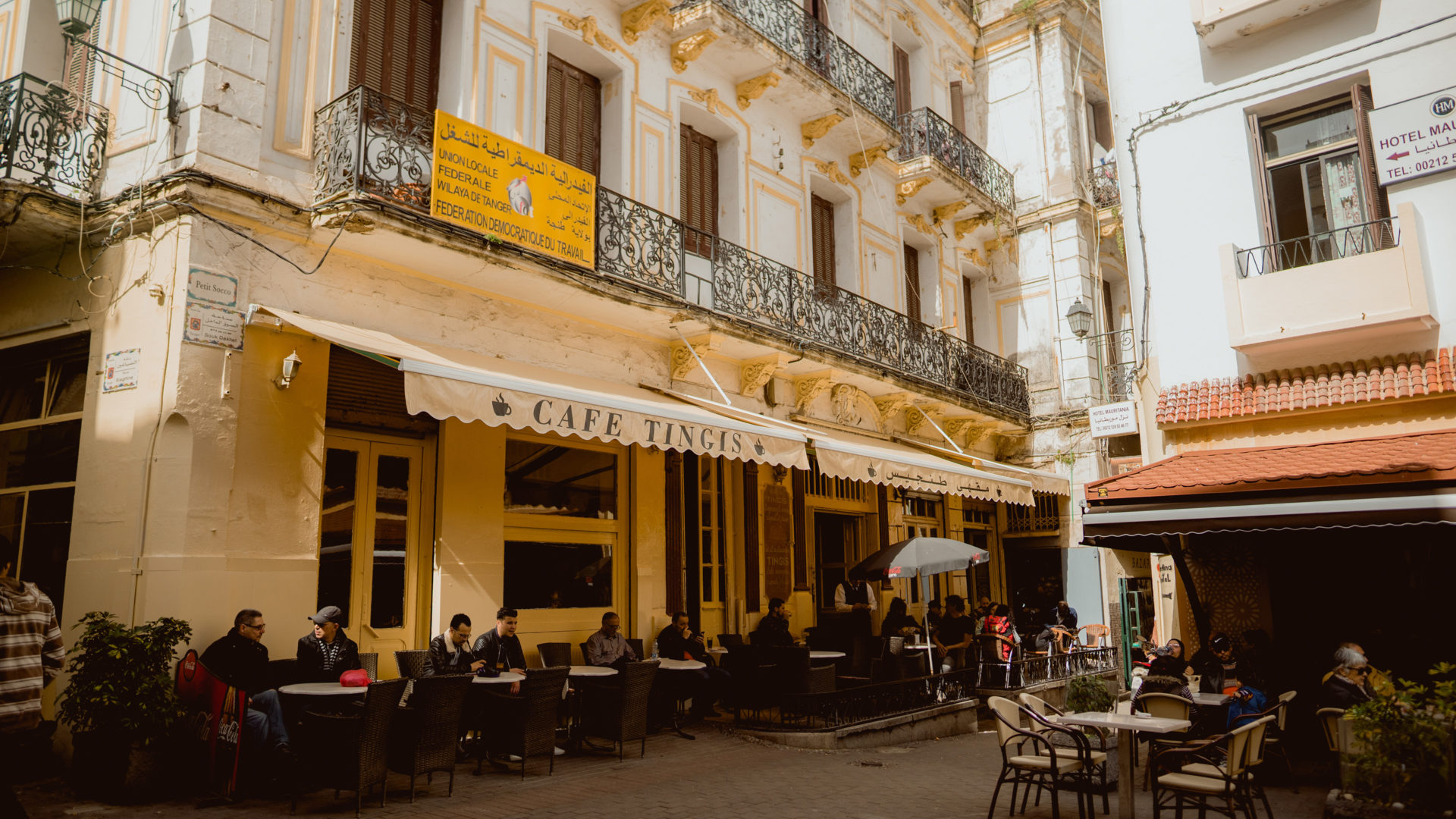
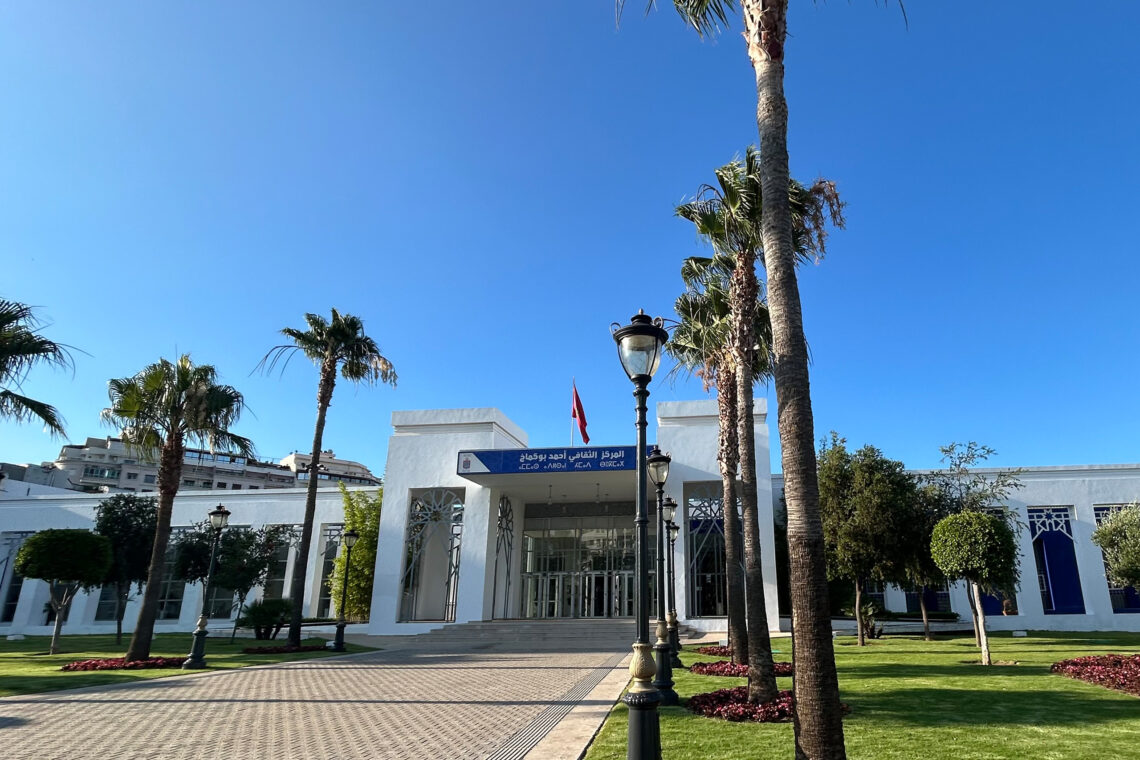
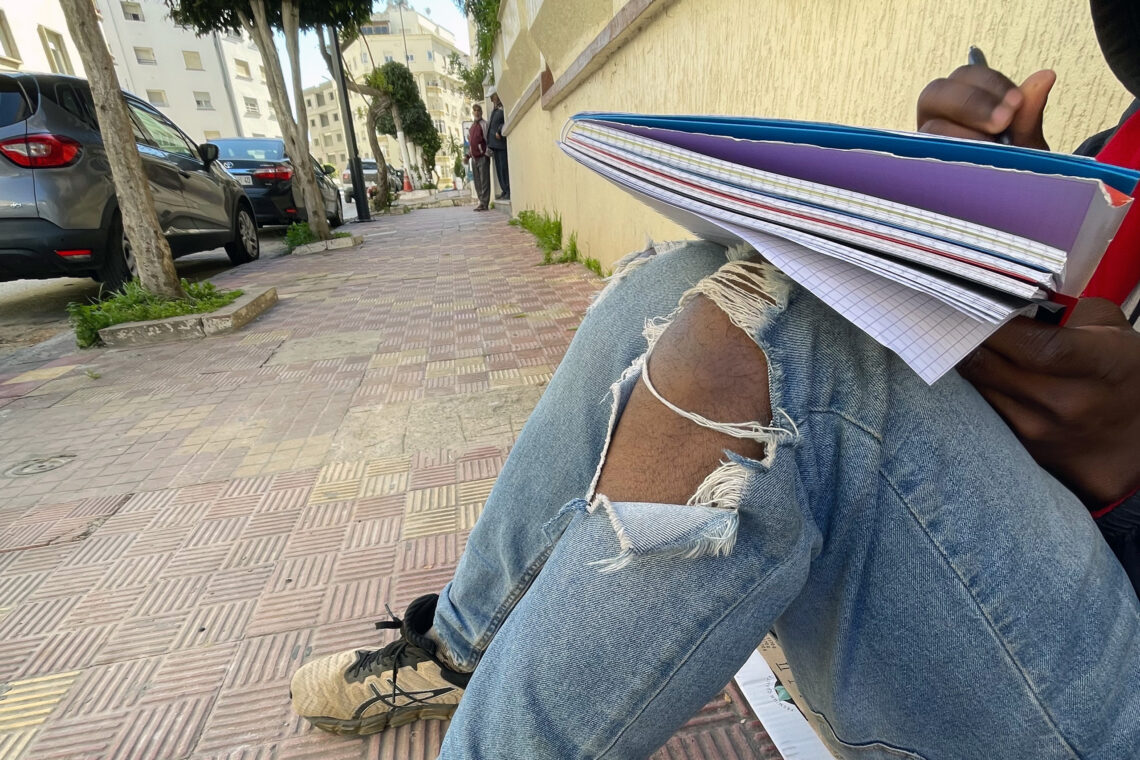
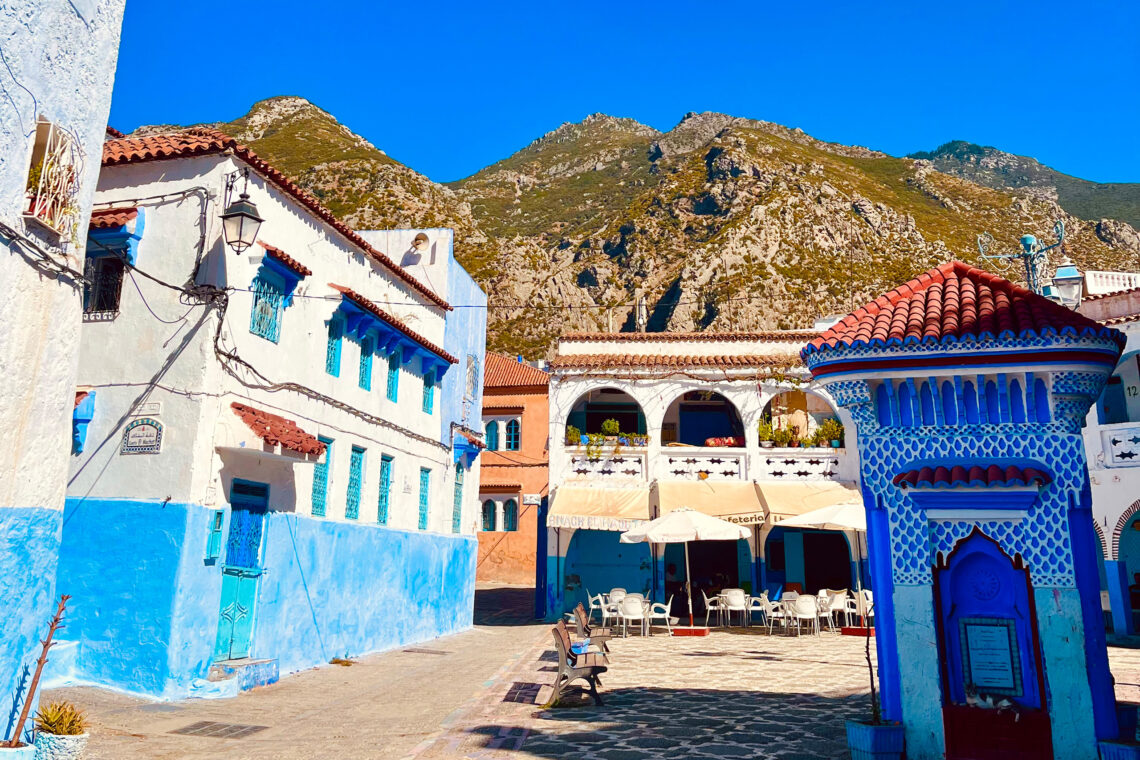
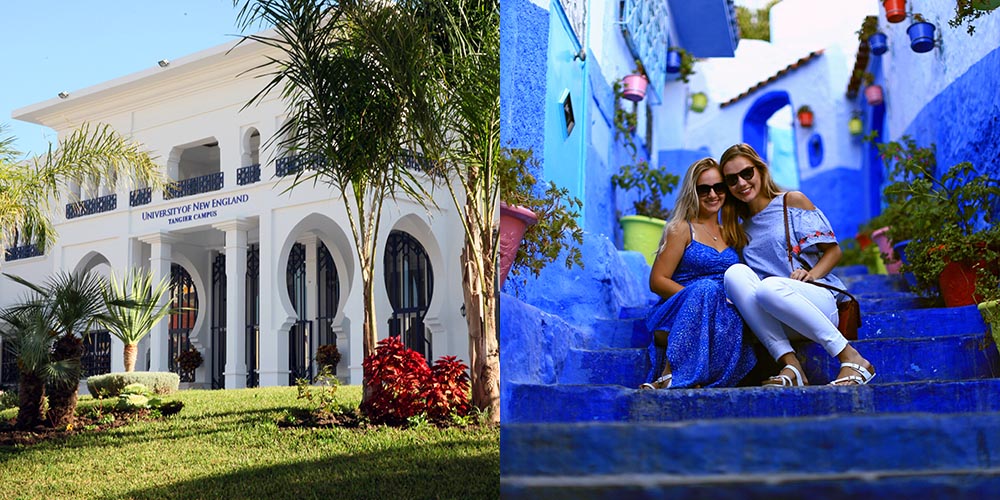

Comments are moderated by the editor and may not appear on this discussion until they have been reviewed and deemed appropriate for posting. All information collected is handled in a manner consistent with our privacy policy.